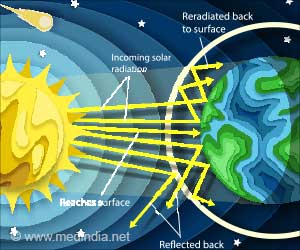A new study found that complications from extreme heat may affect young and middle-aged adults more than the elderly.

‘The implementation of heat adaptation measures will be critically important to handle extreme heat health complications.’





Although the adverse health impacts of heat have been well documented among older adults, less is known about the potential impacts of heat on young and middle-aged adults.The new study examined the association between extreme temperatures and visits to the emergency department (ED) and found that days of extreme heat were associated with adults aged 18-64.
Previous studies on the health impacts of heat have focused primarily on mortality or hospital admissions among seniors.
This study is the first national-scale assessment of the effects of extreme heat on adults of all ages, as well as the first national study to consider ED visits as a marker of adverse impacts of heat on all adults.
“Many illnesses that lead to utilization of the emergency department do not lead to hospitalization because they can be treated in a short amount of time, particularly among the younger adult population,” says study senior author Dr. Gregory Wellenius, professor of environmental health and director of the Program on Climate and Health at BUSPH.
Advertisement
They found that days of extreme heat (varying by location, but averaging about 93 degrees Fahrenheit), were associated with a 66 percent increased risk of ED visits for heat-related illness, as well as a 30 percent increased risk for renal disease, compared to ED visits on cooler days. But the risk associated with extreme heat varied by age.
Advertisement
Younger adults may be at greater risk of exposure to extreme heat, particularly workers who spend substantial time outdoors and they may not be aware of this risk.
The findings were also consistent with previous research has shown that people in US counties with lower warm-season temperatures still experience higher risks of heat-related complications.
“While extreme heat threatens everyone’s health, this study provides further evidence that it is especially dangerous in regions with cooler climates that may be less adapted to heat.
Many of these heat-related complications can be prevented through policy changes that reduce exposure to heat or improve people’s susceptibility and adaptivity to heat. These effective policies will differ among regions, states, and counties.
Source-Medindia









